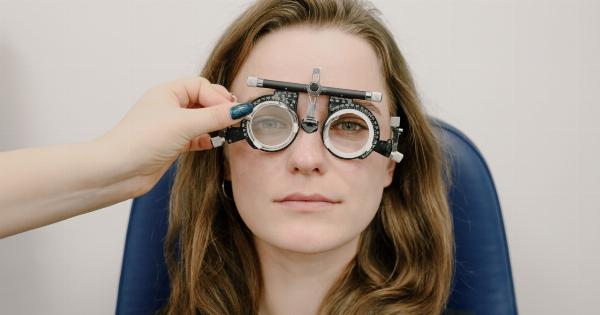Exploring the Treatment of Incarcerated Fronimites.
The Importance of Fair and Just Treatment
When it comes to the treatment of incarcerated individuals, it is crucial to prioritize fairness and justice. The way we treat those who are serving time in prison can have a significant impact on their rehabilitation and reintegration into society.
In this article, we will delve into the treatment of incarcerated fronimites, shining a light on the challenges they face and the ways in which we can improve their conditions.
The Challenges Faced by Incarcerated Fronimites
Fronimites, or individuals who are incarcerated for non-violent offenses, often face unique challenges compared to their counterparts serving time for violent crimes. These challenges can include:.
- Limited access to educational and vocational programs
- Difficulties in securing employment post-release
- Mental health and substance abuse issues
- Stigmatization within the prison system
The Need for Educational and Vocational Programs
One of the key ways to address the challenges faced by incarcerated fronimites is by providing them with access to educational and vocational programs.
These programs not only help individuals develop valuable skills but also empower them to pursue meaningful employment opportunities upon release. By expanding access to education and vocational training, we can significantly enhance the prospects of successful reintegration into society.
Mental Health and Substance Abuse Support
Many fronimites struggle with mental health issues and substance abuse problems, which can contribute to their involvement in non-violent offenses. It is essential to recognize and address these underlying issues while individuals are incarcerated.
By offering comprehensive mental health support and substance abuse treatment within correctional facilities, we can promote recovery and reduce the likelihood of reoffending.
Reducing Stigmatization
Fronimites often face stigmatization within the prison system due to the nature of their offenses. This stigmatization can hinder their rehabilitation and create additional barriers to successful reintegration.
It is vital to create a supportive and inclusive environment within correctional facilities, where all individuals are treated with dignity and respect, regardless of the nature of their offenses. By addressing stigma, we can help incarcerated fronimites regain their self-esteem and motivation for positive change.
Improving Reentry Programs
Successful reentry programs play a critical role in the overall treatment of incarcerated fronimites.
These programs, which provide support and resources for individuals transitioning from prison back into society, can significantly reduce recidivism rates. By strengthening reentry programs, we can ensure that fronimites have access to housing, employment assistance, and other essential resources that foster successful reintegration.
Supporting Families and Building Community Connections
The treatment of incarcerated fronimites should also involve a focus on their families and community connections.
Maintaining strong family ties and nurturing positive relationships with one’s community can be instrumental in the rehabilitation and successful reintegration of individuals who have served time in prison. By providing support to families, facilitating communication, and fostering community connections, we can create a more holistic approach to the treatment of incarcerated fronimites.
Conclusion
Effective treatment of incarcerated fronimites is crucial for their successful rehabilitation and reintegration into society.
By addressing the unique challenges they face, such as limited access to education and vocational programs, mental health and substance abuse issues, stigmatization, and lack of support during reentry, we can pave the way for a brighter future.
Through a combination of educational opportunities, mental health support, reduced stigma, improved reentry programs, and strengthened family and community connections, we can foster positive change and give incarcerated fronimites the tools they need to lead meaningful lives post-release.




























